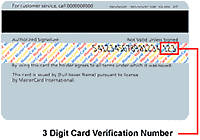Micro-Purchases: Fraudsters often make a series of small, inconspicuous purchases just below the temporary authorization threshold. This makes it less likely that the cardholder will be alerted to the activity. Ethical hacking plays a crucial role in improving cybersecurity and fostering innovation, while malicious hacking poses significant risks to privacy, finances, and digital infrastructure. In conclusion, the world of hacking is a complex landscape with both positive and negative implications.
As technology continues to evolve, ethical hacking and responsible cybersecurity practices are essential in maintaining a safe and secure digital environment for individuals, businesses, and society as a whole. By staying informed, monitoring your accounts, and practicing good cybersecurity habits, you can better protect yourself from falling victim to these stealthy tactics. In the world of credit card fraud, "card hopping" is just one of the many techniques that fraudsters use to exploit vulnerabilities and evade detection.
 Temporary Authorizations: When a cardholder makes a purchase, a temporary authorization is placed on their account to confirm that the card is valid and has sufficient funds. This authorization temporarily reserves the purchase amount but doesn't initiate the actual transfer of funds. They work to strengthen cybersecurity and protect against potential threats. Ethical Hacking: Also known as "white hat" hacking, ethical hackers use their skills to identify vulnerabilities in systems, networks, and software.
Temporary Authorizations: When a cardholder makes a purchase, a temporary authorization is placed on their account to confirm that the card is valid and has sufficient funds. This authorization temporarily reserves the purchase amount but doesn't initiate the actual transfer of funds. They work to strengthen cybersecurity and protect against potential threats. Ethical Hacking: Also known as "white hat" hacking, ethical hackers use their skills to identify vulnerabilities in systems, networks, and software.
Hacking involves exploring and manipulating digital systems to understand their mechanics, improve their functionalities, or unfortunately, exploit their vulnerabilities. In today's interconnected world, the term "hacking" has become synonymous with both innovation and malicious activities. This article provides an overview of the world of hacking, its different aspects, and its implications for individuals, organizations, and society as a whole.
As technology continues to evolve, ethical hacking and responsible cybersecurity practices are essential in maintaining a safe and secure digital environment for individuals, businesses, and society as a whole. By staying informed, monitoring your accounts, and practicing good cybersecurity habits, you can better protect yourself from falling victim to these stealthy tactics. In the world of credit card fraud, "card hopping" is just one of the many techniques that fraudsters use to exploit vulnerabilities and evade detection.
 Temporary Authorizations: When a cardholder makes a purchase, a temporary authorization is placed on their account to confirm that the card is valid and has sufficient funds. This authorization temporarily reserves the purchase amount but doesn't initiate the actual transfer of funds. They work to strengthen cybersecurity and protect against potential threats. Ethical Hacking: Also known as "white hat" hacking, ethical hackers use their skills to identify vulnerabilities in systems, networks, and software.
Temporary Authorizations: When a cardholder makes a purchase, a temporary authorization is placed on their account to confirm that the card is valid and has sufficient funds. This authorization temporarily reserves the purchase amount but doesn't initiate the actual transfer of funds. They work to strengthen cybersecurity and protect against potential threats. Ethical Hacking: Also known as "white hat" hacking, ethical hackers use their skills to identify vulnerabilities in systems, networks, and software.Hacking involves exploring and manipulating digital systems to understand their mechanics, improve their functionalities, or unfortunately, exploit their vulnerabilities. In today's interconnected world, the term "hacking" has become synonymous with both innovation and malicious activities. This article provides an overview of the world of hacking, its different aspects, and its implications for individuals, organizations, and society as a whole.


